While the incompetent backdoor government of Muhyiddin Yassin struggles to explain why Malaysia is months behind neighbouring Singapore in gaining access to Coronavirus vaccines, Singapore has revealed its recipe. Actually, it was not really any super formula, but through common sense, science, methodology, some hard work and business negotiation.
Not only Muhyiddin government has created an impression of utmost incompetence in securing the vaccines, but also a perception that corrupt politicians were profiting from the pandemic. After a Belgian minister revealed the price that the European Union has agreed to pay for the Covid vaccines, the Malaysian government was plagued with allegations of overpaying.
Known for accepting kickbacks, the corrupt Muhyiddin government has been accused of paying 20 times more than Belgium for Pfizer vaccine. The price revealed by Belgium was – Pfizer-BioNTech: €12 (US$14.60), Oxford-AstraZeneca: €1.78 (US$2.17), Moderna: US$18, Johnson & Johnson: US$8.50, CureVac: €10 (US$12.18) and Sanofi/GSK: €7.56 (US$9.21).
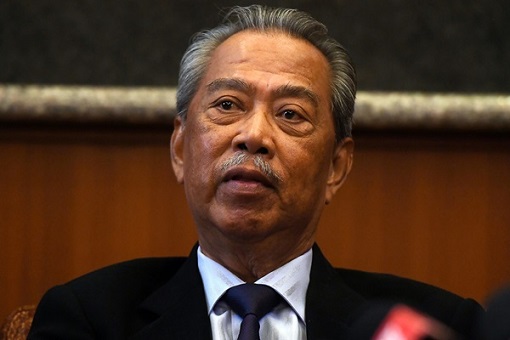
At €12 a pop, the Pfizer Covid-19 vaccine would cost about RM60 per dose. It was only last month that Malaysia signed its first Covid-19 vaccine agreement, purchasing 12.8 million doses of the Pfizer-BioNTech vaccine to immunise 20% of the population. Because the vaccine is a two-dose regimen, the 12.8 million doses mean 6.4 million people would get the jab.
After being accused of hanky-panky, Science, Technology and Innovation Minister Khairy Jamaluddin rubbished the accusation. He told opposition MP Lim Kit Siang that the RM3 billion allocations were to cover 70% of the country’s population of 32 million. Strangely, the government said yesterday 80% of Malaysians would be vaccinated at the cost of RM2.05 billion.
So, which is which – RM3 billion for 70% population or RM2.05 billion for 80% population? There were also critics who said that the RM3 billion would secure only 10 million doses of vaccines. Even if everyone is given Pfizer vaccine, which is the second most expensive after Moderna, the total cost is only RM1.34 billion – way lower than RM3 billion or RM2.05 billion.
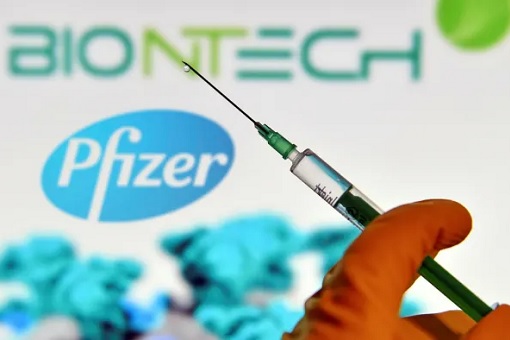
Because the government has decided to purchase a mixture of Coronavirus vaccines from different pharmaceutical companies, obviously the final cost will be much lower than RM1.34 billion. But even if some corrupt ministers have marked up the vaccines to fill their own pockets, they should at least make sure the vaccines are quickly available.
The first batch of the Pfizer-BioNTech Covid-19 vaccine landed at Changi Airport, Singapore at about 7.30pm two days ago (Monday – Dec 21). According to plan, there will be enough vaccines for everyone in Singapore by the third quarter of 2021. Malaysia, on the other hand, has just woken up from slumber land, and needs between 90 to 120 days to approve Pfizer vaccine.
Yes, while neighbour Singapore has joined the U.S., Britain, Canada and European Union in vaccinating their citizens, Malaysia has only begun its five-phase evaluation process – including checking documentation. Health director-general Noor Hisham Abdullah said – “We have five phases. We may take around 90-120 days to scrutinise everything and make sure it is safe to use”.
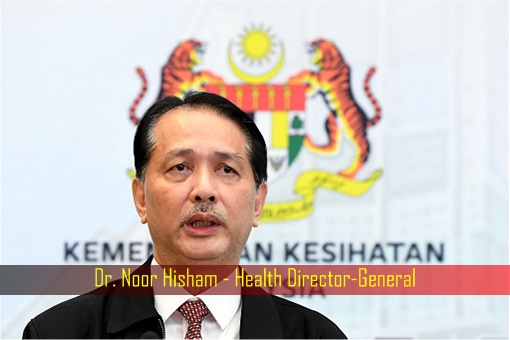
Exactly what type of expertise that Malaysia has that the Western countries do not? How could Singapore be steps ahead of Malaysia in approving the vaccine? From the beginning, Singapore recognized the importance of acting fast to become the first nation in Asia to receive Pfizer-BioNTech vaccine, especially when the tiny nation has to compete with powerful nations for limited chunks of vaccine.
Singapore has identified 3 steps – Identify, Investigate and Negotiate. As early as April, when the power-hungry backdoor government of Muhyiddin was busy fighting and dividing power and positions among themselves, Singapore had already taken steps to ensure that it had access to all available information about the potential vaccines. The first move was to form a panel of experts.
Led by Professor Benjamin Seet, the therapeutics and vaccines panel comprised 18 scientists from the public and private sector. They would go through data on potential drugs from more than 35 vaccine candidates. The goal was to identify the most promising vaccines and assess which were safe and efficient for procurement. They studied different types of technologies.
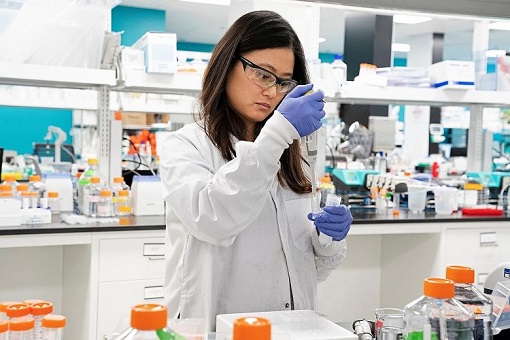
Eventually, the Singapore scientists identified vaccine based on genetic material called mRNA as a potential candidate simply because such vaccine is easier to manufacture. Therefore, they could go into clinical trials earlier and be made available globally in large quantities. Pfizer-BioNTech and Moderna vaccines are based on mRNA technology.
The vaccine introduces the mRNA to the human body, triggering human cells to produce a “spike proteins”. As a result of these proteins, the human body produces antibodies to guard against Coronavirus infection – creating an immune system. Pfizer and Moderna have claimed effectiveness of 95% and 94.5% respectively.
Singapore’s second step in late April was to investigate the vaccine candidates identified or recommended by scientists. A new planning group was formed to make “strategic bets” on the potential vaccines to be procured. The group relied on science-based assessment made by the scientific panel. In essence, they depended on strong relationships between EDB Singapore and pharmaceutical companies like Pfizer.
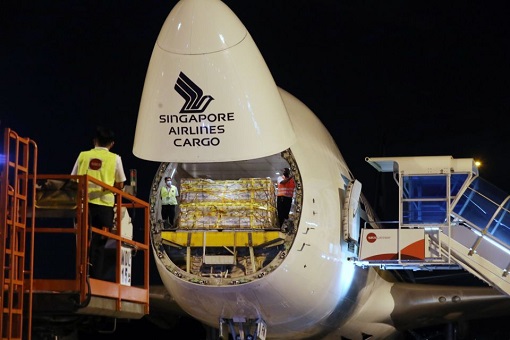
The process included gaining access to valuable data from drug makers that is not available to the public. That would give Singapore the advantage because by the time data from clinical studies are made public when they are published in scientific journals, such information would be outdated. To get the “insider information”, Singapore had signed about 40 non-disclosure agreements (NDA).
The best part was that none of the NDAs were contractual – meaning Singapore was not obliged to purchase any vaccines from the drug makers whom it signed the agreements with. So while Singapore was pro-actively studying first hand data to help it investigate vaccine candidates, Malaysia was basically sitting and waiting for news about vaccine before start its investigating.
The last step – negotiate – involved allocating S$1 billion to support Singapore’s search for vaccines. The money includes Singapore’s participation in the multilateral COVAX facility initiative to ensure access to the vaccine, as well as support for local development efforts in terms of therapeutics and vaccines. It also involved support for companies to manufacture vaccines in Singapore.
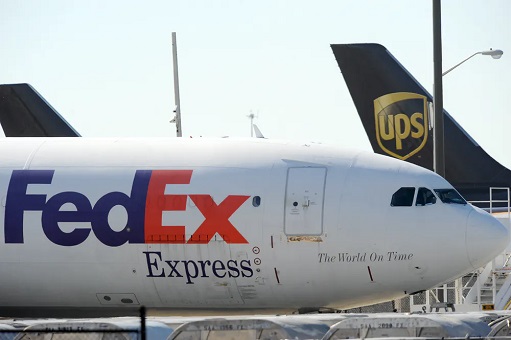
Of course, it helps that international pharmaceutical firms recognize Singapore as a leading biomedical hub in Asia. In fact, armed with support of logistics giants DHL, UPS and FedEx, the country wants to become a Covid-19 vaccine distribution hub for the region. Already, Singapore can produce 4 tonnes of dry ice every day – something required to store Pfizer vaccine.
Unlike Malaysia, Singapore was smart enough to not only identify and investigate Covid-19 vaccines months ahead before procurement, but also to negotiate for guaranteed and quick supply of vaccines for its people. In addition, instead if being a consumer, Singapore tries to create new business, jobs, and even to develop the country as a vaccine manufacturing centre in the region.
Other Articles That May Interest You …
- Before You Rush For Covid-19 Vaccine, Remember This – You Can’t Sue Anyone If Suffer Any Serious Side Effects
- Congrats Backdoor Government – Malaysia Beats China In Covid-19 Cases, Lockdown Fails To Flatten The Curve
- Here’s Why You Should Not Rush To Get A Covid-19 Vaccine – Even After Britain Approved Pfizer Vaccine
- Mistake Or Cheating? – AstraZeneca-Oxford Admits Manufacturing Error In Its Vaccine Effectiveness Results
- AstraZeneca-Oxford Vaccine Shows 62% To 90% Effectiveness – Here’s Why This Could Be The Best Bet For Everyone
- Moderna Reveals Covid Vaccine – Here’s How This 94.5% Effective Vaccine Differs From Pfizer’s Vaccine
- Coronavirus – Here’s How China Is Back To Normal While The U.S. And Europe Are Getting From Bad To Worse
- New Wave!! – Power Hungry Muhyiddin Is Responsible For The Spread Of Covid-19 From Sabah To The Entire Country
- 3 Coronavirus Variants Discovered – Surprisingly, “Type-A” Found In Americans, Wuhan’s Type-B And Type-C In Europe
- From Doraemon To Finding Coronavirus In Sewage – The Government’s Top-6 Screw Ups Within 14-Day Of Lockdown
- The World Is Working On 20 Coronavirus Vaccines – But It Could Take Up To 18 Months

|
|
December 23rd, 2020 by financetwitter
|


|

|

|

|

|

|




























It’s not speed, it’s quality.
And Malaysia is even worse in that department!
Our expertise is in making lots of money disappear while we run around cluelessly doing “research” (ie laze about), then after years of milking the nation, come out with nothing.
That’s the result of breeding a big quantity of those with rubbish PhDs led by our kampong garden variety of politicians with bogus PhDs.
But all is not lost – we make Singapore laugh deliriously at us as we flaunt our plentiful crap PhDs and wait for China to save us from ourselves!
Our only way out is to lelong the country to the Chinese, we be nodding slaves to our Chinese uncles.
Don’t forget, the only time in history “we” were successful was when the Brits were our Lords and massahs – and we were servile slaves – well, at least not those who disappeared into the jungles and gave them angmohs a hard time..!
Well, selling our cheap souls to the Chinese shouldn’t be difficult or anything new. And, unlike the Brits who would pay us nothing for our riches, the Chinese would pay next to nothing – but still tell our legend and sarabat stall hero Dr M to fcuk off!
Remember it was the Chinese uncles came down from heaven instantly ressurected Dr M’s favourite child Proton. All the Snake Pharaoh could do was to jerk himself stupid, while asking for endless loads of dedak from our pockets.
Btw, another Dr M disaster, our airline, should be sold to the Chinese for RM1. 00. Don’t ask why, if you’ve only got a Malaysian longkang quality PhD! You can secretly ask Singapore primary school kids for the answers.
Don’t ask Dr M for the answers, you’d only get a long-winded endless lecture of ignorant shifty snake talk of standard kampong sarabat stall quality, the kind of stuff that got that Lee Kuan Yew to spit on our undead deadbeat, hero of our locally-bred PhDs!